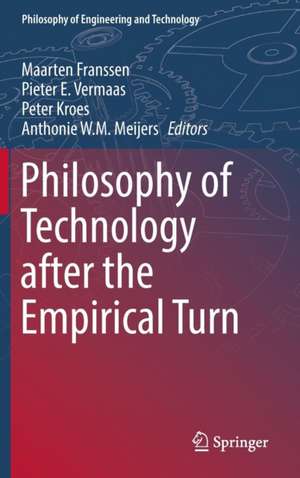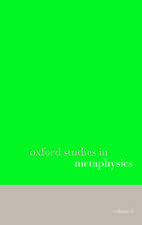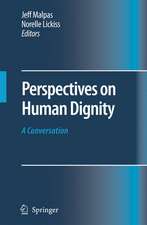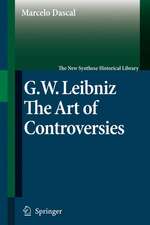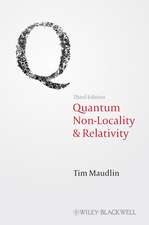Philosophy of Technology after the Empirical Turn: Philosophy of Engineering and Technology, cartea 23
Editat de Maarten Franssen, Pieter E. Vermaas, Peter Kroes, Anthonie W.M. Meijersen Limba Engleză Hardback – 30 iun 2016
This volume features 16 essays on the philosophy of technology that discuss its identity, its position in philosophy in general, and the role of empirical studies in philosophical analyses of engineering ethics and engineering practices.
This volume is published about fifteen years after Peter Kroes and Anthonie Meijers published a collection of papers under the title The empirical turn in the philosophy of technology, in which they called for a reorientation toward the practice of engineering, and sketched the likely benefits for philosophy of technology of pursuing its major questions in an empirically informed way.
The essays in this volume fall apart in two different kinds. One kind follows up on The empirical turn discussion about what the philosophy of technology is all about. It continues the search for the identity of the philosophy of technology by asking what comes after the empirical turn. The other kind of essays follows the call for an empirical turn in the philosophy of technology by showing how it may be realized with regard to particular topics. Together these essays offer the reader an overview of the state of the art of an empirically informed philosophy of technology and of various views on the empirical turn as a stepping stone into the future of the philosophy of technology.
This volume is published about fifteen years after Peter Kroes and Anthonie Meijers published a collection of papers under the title The empirical turn in the philosophy of technology, in which they called for a reorientation toward the practice of engineering, and sketched the likely benefits for philosophy of technology of pursuing its major questions in an empirically informed way.
The essays in this volume fall apart in two different kinds. One kind follows up on The empirical turn discussion about what the philosophy of technology is all about. It continues the search for the identity of the philosophy of technology by asking what comes after the empirical turn. The other kind of essays follows the call for an empirical turn in the philosophy of technology by showing how it may be realized with regard to particular topics. Together these essays offer the reader an overview of the state of the art of an empirically informed philosophy of technology and of various views on the empirical turn as a stepping stone into the future of the philosophy of technology.
| Toate formatele și edițiile | Preț | Express |
|---|---|---|
| Paperback (1) | 782.87 lei 6-8 săpt. | |
| Springer International Publishing – 7 iun 2018 | 782.87 lei 6-8 săpt. | |
| Hardback (1) | 788.90 lei 6-8 săpt. | |
| Springer International Publishing – 30 iun 2016 | 788.90 lei 6-8 săpt. |
Din seria Philosophy of Engineering and Technology
- 9%
 Preț: 627.13 lei
Preț: 627.13 lei -
 Preț: 378.64 lei
Preț: 378.64 lei - 15%
 Preț: 662.95 lei
Preț: 662.95 lei -
 Preț: 280.88 lei
Preț: 280.88 lei - 20%
 Preț: 551.32 lei
Preț: 551.32 lei - 15%
 Preț: 646.75 lei
Preț: 646.75 lei - 24%
 Preț: 806.76 lei
Preț: 806.76 lei - 18%
 Preț: 1110.86 lei
Preț: 1110.86 lei -
 Preț: 392.97 lei
Preț: 392.97 lei - 18%
 Preț: 958.07 lei
Preț: 958.07 lei - 15%
 Preț: 645.28 lei
Preț: 645.28 lei - 15%
 Preț: 644.63 lei
Preț: 644.63 lei -
 Preț: 394.12 lei
Preț: 394.12 lei -
 Preț: 393.52 lei
Preț: 393.52 lei - 15%
 Preț: 638.90 lei
Preț: 638.90 lei - 15%
 Preț: 660.04 lei
Preț: 660.04 lei - 15%
 Preț: 654.43 lei
Preț: 654.43 lei - 15%
 Preț: 646.43 lei
Preț: 646.43 lei - 15%
 Preț: 646.75 lei
Preț: 646.75 lei -
 Preț: 370.49 lei
Preț: 370.49 lei -
 Preț: 387.78 lei
Preț: 387.78 lei - 18%
 Preț: 735.07 lei
Preț: 735.07 lei - 18%
 Preț: 956.18 lei
Preț: 956.18 lei - 15%
 Preț: 637.59 lei
Preț: 637.59 lei - 18%
 Preț: 1009.40 lei
Preț: 1009.40 lei - 18%
 Preț: 787.91 lei
Preț: 787.91 lei - 15%
 Preț: 638.89 lei
Preț: 638.89 lei - 20%
 Preț: 566.76 lei
Preț: 566.76 lei - 18%
 Preț: 725.43 lei
Preț: 725.43 lei
Preț: 788.90 lei
Preț vechi: 962.06 lei
-18% Nou
Puncte Express: 1183
Preț estimativ în valută:
150.98€ • 157.04$ • 124.64£
150.98€ • 157.04$ • 124.64£
Carte tipărită la comandă
Livrare economică 14-28 aprilie
Preluare comenzi: 021 569.72.76
Specificații
ISBN-13: 9783319337166
ISBN-10: 3319337165
Pagini: 325
Ilustrații: VI, 325 p. 9 illus., 3 illus. in color.
Dimensiuni: 155 x 235 x 19 mm
Greutate: 0.64 kg
Ediția:1st ed. 2016
Editura: Springer International Publishing
Colecția Springer
Seria Philosophy of Engineering and Technology
Locul publicării:Cham, Switzerland
ISBN-10: 3319337165
Pagini: 325
Ilustrații: VI, 325 p. 9 illus., 3 illus. in color.
Dimensiuni: 155 x 235 x 19 mm
Greutate: 0.64 kg
Ediția:1st ed. 2016
Editura: Springer International Publishing
Colecția Springer
Seria Philosophy of Engineering and Technology
Locul publicării:Cham, Switzerland
Cuprins
1. Introduction (Maarten Franssen).- 2. Towards a Constructive Philosophy and Ethicsof Technology (PhilipBrey).- 3. The Policy Turn in the Philosophy of Technology (Adam Briggle).- 4. Function and Meaning (Andrew Feenberg).- 5. How to Situate and Anchor ThePhilosophy of Technology in The Landscape of Philosophy? (Maarten Franssen).- 6. Technology as a Practical Art (Sven OveHansson).- 7. Values inDesign: Towards a Further Integration of Empirical and Normative Considerations(Rafaela Hillerbrand).- 8. PerovskitePhilosophy. A Branch-Formation Model of Application-Oriented Science (WyboHoukes).- 9. Toward an AxiologicalTurn in the Philosophy of Technology (Peter Kroes) .- 10. Composition and Handoff in Socio-technologies (DeirdreK. Mulligan).- 11. For theBenefit of Humanity: Micro-, Meso-, Macro-, and Meta-Values in Engineering (ByronNewberry).- 12. Science vs. Technology: Difference or Identity? (Ilkka Niiniluoto).- 13. ChangingPerspectives: From the Experimental tothe Technological Turn in History andPhilosophy of Science (Alfred Nordmann).- 14. What the Future will Bring (Joseph C. Pitt).- 15. Function and Finitism (Pablo Schyfter).- 16. An Empirical Turnin Ethics of Technology: On the Possibility of Using Empirical Data in TheEthics of Technology and Engineering (Benham Taebi).- 17. The Empirical Turn in Ethics (Ibo van de Poel).- 18. TheEngineering Turn in Conceptual Analysis (Pieter E. Vermaas).- 19. An Empirical Based Classification ofEngineering Projects (Sjoerd D. Zwart).
Notă biografică
Maarten Franssen isassociate professor at the Section of Philosophy at Delft University ofTechnology. His research interests include the relation between philosophy oftechnology and philosophy of science, the nature of normativity in relation toartefacts and their use, the metaphysics of artefacts, the analysis oftechnology as concerned with instrumental and sociotechnical systems, and theanalysis of design as decision-making and its problems.
Pieter Vermaas isassociate professor at the Department of Philosophy at Delft University ofTechnology. His research in the philosophy of technology includes analyses ofthe concepts of technical function and of technical artefacts, and morerecently the study of the structure, aims, and validation of design methods anddesign thinking. He co-edits the journal Design Science, and edits two bookseries: Philosophy of Engineering and Technology, and Design ResearchFoundations. www.pietervermaas.nl
Peter Kroes is fullprofessor at the Department of Philosophy of Technology at Delft University ofTechnology. His main interests in the field of the philosophy of technology arethe dual nature of technical artefacts and the philosophy of engineeringdesign. He is one of the co-editors of the book on the empirical turn in thephilosophy of technology. http://www.tbm.tudelft.nl/en/about-faculty/departments/values-technology-and-innovation/sections/ethicsphilosophy-of-technology/staff/profdrir-pa-peter-kroes/
Anthonie Meijers is fullprofessor at the Department of Philosophy and Ethics of Eindhoven University ofTechnology. His main interests in the field of the philosophy of technology arethe theory of artefacts, agency and artefacts, and the epistemology oftechnology. He is one of the co-editors of the book on the empirical turn inthe philosophy of technology and the editor in chief of the Handbook Philosophyof Technology and Engineering Sciences (2009).
Pieter Vermaas isassociate professor at the Department of Philosophy at Delft University ofTechnology. His research in the philosophy of technology includes analyses ofthe concepts of technical function and of technical artefacts, and morerecently the study of the structure, aims, and validation of design methods anddesign thinking. He co-edits the journal Design Science, and edits two bookseries: Philosophy of Engineering and Technology, and Design ResearchFoundations. www.pietervermaas.nl
Peter Kroes is fullprofessor at the Department of Philosophy of Technology at Delft University ofTechnology. His main interests in the field of the philosophy of technology arethe dual nature of technical artefacts and the philosophy of engineeringdesign. He is one of the co-editors of the book on the empirical turn in thephilosophy of technology. http://www.tbm.tudelft.nl/en/about-faculty/departments/values-technology-and-innovation/sections/ethicsphilosophy-of-technology/staff/profdrir-pa-peter-kroes/
Anthonie Meijers is fullprofessor at the Department of Philosophy and Ethics of Eindhoven University ofTechnology. His main interests in the field of the philosophy of technology arethe theory of artefacts, agency and artefacts, and the epistemology oftechnology. He is one of the co-editors of the book on the empirical turn inthe philosophy of technology and the editor in chief of the Handbook Philosophyof Technology and Engineering Sciences (2009).
Textul de pe ultima copertă
This volume features 16 essays on the philosophy of technology that discuss its identity, its position in philosophy in general, and the role of empirical studies in philosophical analyses of engineering ethics and engineering practices.
This volume is published about fifteen years after Peter Kroes and Anthonie Meijers published a collection of papers under the title The empirical turn in the philosophy of technology, in which they called for a reorientation toward the practice of engineering, and sketched the likely benefits for philosophy of technology of pursuing its major questions in an empirically informed way.
The essaysin this volume fall apart in two different kinds. One kind follows up on The empirical turn discussion about what the philosophy of technology is all about. It continues the search for the identity of the philosophy of technology by asking what comes after the empirical turn. The other kind of essays follows the call for an empirical turn in the philosophy of technology by showing how it may be realized with regard to particular topics. Together these essays offer the reader an overview of the state of the art of an empirically informed philosophy of technology and of various views on the empirical turn as a stepping stone into the future of the philosophy of technology.
This volume is published about fifteen years after Peter Kroes and Anthonie Meijers published a collection of papers under the title The empirical turn in the philosophy of technology, in which they called for a reorientation toward the practice of engineering, and sketched the likely benefits for philosophy of technology of pursuing its major questions in an empirically informed way.
The essaysin this volume fall apart in two different kinds. One kind follows up on The empirical turn discussion about what the philosophy of technology is all about. It continues the search for the identity of the philosophy of technology by asking what comes after the empirical turn. The other kind of essays follows the call for an empirical turn in the philosophy of technology by showing how it may be realized with regard to particular topics. Together these essays offer the reader an overview of the state of the art of an empirically informed philosophy of technology and of various views on the empirical turn as a stepping stone into the future of the philosophy of technology.
Caracteristici
Gives an overview of the current state of debate in the philosophy of technology Brings together work from two distinct traditions in the philosophy of technology: one social-scientific and the other philosophical Presents a rethinking of the place of philosophy of technology in philosophy in general
